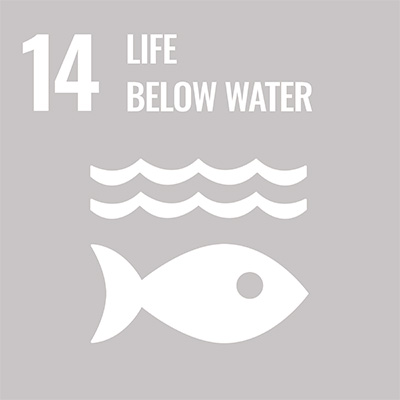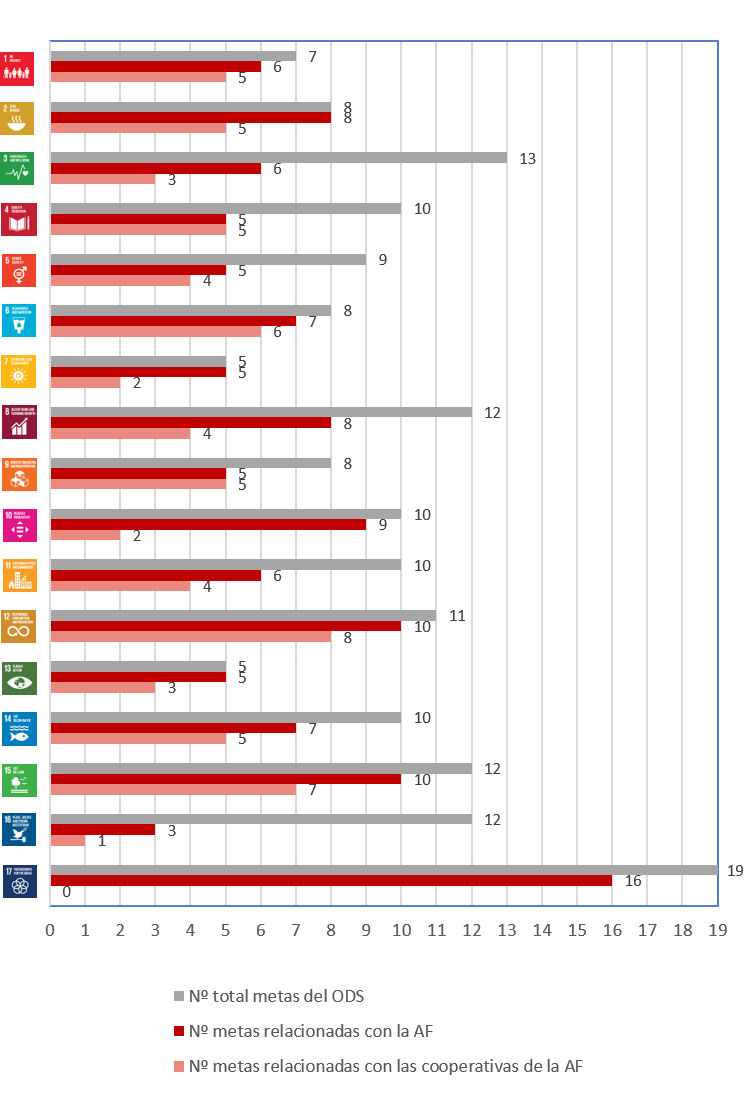Notice: Undefined index: p17 in /var/www/vhosts/agricoopds.org/httpdocs/wp-content/themes/newedge-child/functions.php on line 297
Notice: Undefined index: p24 in /var/www/vhosts/agricoopds.org/httpdocs/wp-content/themes/newedge-child/functions.php on line 298
Notice: Undefined index: p19 in /var/www/vhosts/agricoopds.org/httpdocs/wp-content/themes/newedge-child/functions.php on line 308
Notice: Undefined index: p23 in /var/www/vhosts/agricoopds.org/httpdocs/wp-content/themes/newedge-child/functions.php on line 309
Notice: Undefined index: p27 in /var/www/vhosts/agricoopds.org/httpdocs/wp-content/themes/newedge-child/functions.php on line 319
Notice: Undefined index: p29 in /var/www/vhosts/agricoopds.org/httpdocs/wp-content/themes/newedge-child/functions.php on line 320
Notice: Undefined index: p30 in /var/www/vhosts/agricoopds.org/httpdocs/wp-content/themes/newedge-child/functions.php on line 321
Notice: Undefined index: p31 in /var/www/vhosts/agricoopds.org/httpdocs/wp-content/themes/newedge-child/functions.php on line 322
Notice: Undefined index: p32 in /var/www/vhosts/agricoopds.org/httpdocs/wp-content/themes/newedge-child/functions.php on line 330
Notice: Undefined index: p35 in /var/www/vhosts/agricoopds.org/httpdocs/wp-content/themes/newedge-child/functions.php on line 335
Notice: Undefined index: p35 in /var/www/vhosts/agricoopds.org/httpdocs/wp-content/themes/newedge-child/functions.php on line 336
Notice: Undefined index: p28 in /var/www/vhosts/agricoopds.org/httpdocs/wp-content/themes/newedge-child/functions.php on line 341
Notice: Undefined index: p20 in /var/www/vhosts/agricoopds.org/httpdocs/wp-content/themes/newedge-child/functions.php on line 345
Notice: Undefined index: p21 in /var/www/vhosts/agricoopds.org/httpdocs/wp-content/themes/newedge-child/functions.php on line 351
Notice: Undefined index: p22 in /var/www/vhosts/agricoopds.org/httpdocs/wp-content/themes/newedge-child/functions.php on line 352
Notice: Undefined index: p21 in /var/www/vhosts/agricoopds.org/httpdocs/wp-content/themes/newedge-child/functions.php on line 364
Notice: Undefined index: p34 in /var/www/vhosts/agricoopds.org/httpdocs/wp-content/themes/newedge-child/functions.php on line 369
Notice: Undefined index: p33 in /var/www/vhosts/agricoopds.org/httpdocs/wp-content/themes/newedge-child/functions.php on line 374
Notice: Undefined index: p17 in /var/www/vhosts/agricoopds.org/httpdocs/wp-content/themes/newedge-child/functions.php on line 297
Notice: Undefined index: p24 in /var/www/vhosts/agricoopds.org/httpdocs/wp-content/themes/newedge-child/functions.php on line 298
Notice: Undefined index: p19 in /var/www/vhosts/agricoopds.org/httpdocs/wp-content/themes/newedge-child/functions.php on line 308
Notice: Undefined index: p23 in /var/www/vhosts/agricoopds.org/httpdocs/wp-content/themes/newedge-child/functions.php on line 309
Notice: Undefined index: p27 in /var/www/vhosts/agricoopds.org/httpdocs/wp-content/themes/newedge-child/functions.php on line 319
Notice: Undefined index: p29 in /var/www/vhosts/agricoopds.org/httpdocs/wp-content/themes/newedge-child/functions.php on line 320
Notice: Undefined index: p30 in /var/www/vhosts/agricoopds.org/httpdocs/wp-content/themes/newedge-child/functions.php on line 321
Notice: Undefined index: p31 in /var/www/vhosts/agricoopds.org/httpdocs/wp-content/themes/newedge-child/functions.php on line 322
Notice: Undefined index: p32 in /var/www/vhosts/agricoopds.org/httpdocs/wp-content/themes/newedge-child/functions.php on line 330
Notice: Undefined index: p35 in /var/www/vhosts/agricoopds.org/httpdocs/wp-content/themes/newedge-child/functions.php on line 335
Notice: Undefined index: p35 in /var/www/vhosts/agricoopds.org/httpdocs/wp-content/themes/newedge-child/functions.php on line 336
Notice: Undefined index: p28 in /var/www/vhosts/agricoopds.org/httpdocs/wp-content/themes/newedge-child/functions.php on line 341
Notice: Undefined index: p20 in /var/www/vhosts/agricoopds.org/httpdocs/wp-content/themes/newedge-child/functions.php on line 345
Notice: Undefined index: p21 in /var/www/vhosts/agricoopds.org/httpdocs/wp-content/themes/newedge-child/functions.php on line 351
Notice: Undefined index: p22 in /var/www/vhosts/agricoopds.org/httpdocs/wp-content/themes/newedge-child/functions.php on line 352
Notice: Undefined index: p21 in /var/www/vhosts/agricoopds.org/httpdocs/wp-content/themes/newedge-child/functions.php on line 364
Notice: Undefined index: p34 in /var/www/vhosts/agricoopds.org/httpdocs/wp-content/themes/newedge-child/functions.php on line 369
Notice: Undefined index: p33 in /var/www/vhosts/agricoopds.org/httpdocs/wp-content/themes/newedge-child/functions.php on line 374
Notice: Undefined index: p17 in /var/www/vhosts/agricoopds.org/httpdocs/wp-content/themes/newedge-child/functions.php on line 297
Notice: Undefined index: p24 in /var/www/vhosts/agricoopds.org/httpdocs/wp-content/themes/newedge-child/functions.php on line 298
Notice: Undefined index: p19 in /var/www/vhosts/agricoopds.org/httpdocs/wp-content/themes/newedge-child/functions.php on line 308
Notice: Undefined index: p23 in /var/www/vhosts/agricoopds.org/httpdocs/wp-content/themes/newedge-child/functions.php on line 309
Notice: Undefined index: p27 in /var/www/vhosts/agricoopds.org/httpdocs/wp-content/themes/newedge-child/functions.php on line 319
Notice: Undefined index: p29 in /var/www/vhosts/agricoopds.org/httpdocs/wp-content/themes/newedge-child/functions.php on line 320
Notice: Undefined index: p30 in /var/www/vhosts/agricoopds.org/httpdocs/wp-content/themes/newedge-child/functions.php on line 321
Notice: Undefined index: p31 in /var/www/vhosts/agricoopds.org/httpdocs/wp-content/themes/newedge-child/functions.php on line 322
Notice: Undefined index: p32 in /var/www/vhosts/agricoopds.org/httpdocs/wp-content/themes/newedge-child/functions.php on line 330
Notice: Undefined index: p35 in /var/www/vhosts/agricoopds.org/httpdocs/wp-content/themes/newedge-child/functions.php on line 335
Notice: Undefined index: p35 in /var/www/vhosts/agricoopds.org/httpdocs/wp-content/themes/newedge-child/functions.php on line 336
Notice: Undefined index: p28 in /var/www/vhosts/agricoopds.org/httpdocs/wp-content/themes/newedge-child/functions.php on line 341
Notice: Undefined index: p20 in /var/www/vhosts/agricoopds.org/httpdocs/wp-content/themes/newedge-child/functions.php on line 345
Notice: Undefined index: p21 in /var/www/vhosts/agricoopds.org/httpdocs/wp-content/themes/newedge-child/functions.php on line 351
Notice: Undefined index: p22 in /var/www/vhosts/agricoopds.org/httpdocs/wp-content/themes/newedge-child/functions.php on line 352
Notice: Undefined index: p21 in /var/www/vhosts/agricoopds.org/httpdocs/wp-content/themes/newedge-child/functions.php on line 364
Notice: Undefined index: p34 in /var/www/vhosts/agricoopds.org/httpdocs/wp-content/themes/newedge-child/functions.php on line 369
Notice: Undefined index: p33 in /var/www/vhosts/agricoopds.org/httpdocs/wp-content/themes/newedge-child/functions.php on line 374
Notice: Undefined index: p17 in /var/www/vhosts/agricoopds.org/httpdocs/wp-content/themes/newedge-child/functions.php on line 297
Notice: Undefined index: p24 in /var/www/vhosts/agricoopds.org/httpdocs/wp-content/themes/newedge-child/functions.php on line 298
Notice: Undefined index: p19 in /var/www/vhosts/agricoopds.org/httpdocs/wp-content/themes/newedge-child/functions.php on line 308
Notice: Undefined index: p23 in /var/www/vhosts/agricoopds.org/httpdocs/wp-content/themes/newedge-child/functions.php on line 309
Notice: Undefined index: p27 in /var/www/vhosts/agricoopds.org/httpdocs/wp-content/themes/newedge-child/functions.php on line 319
Notice: Undefined index: p29 in /var/www/vhosts/agricoopds.org/httpdocs/wp-content/themes/newedge-child/functions.php on line 320
Notice: Undefined index: p30 in /var/www/vhosts/agricoopds.org/httpdocs/wp-content/themes/newedge-child/functions.php on line 321
Notice: Undefined index: p31 in /var/www/vhosts/agricoopds.org/httpdocs/wp-content/themes/newedge-child/functions.php on line 322
Notice: Undefined index: p32 in /var/www/vhosts/agricoopds.org/httpdocs/wp-content/themes/newedge-child/functions.php on line 330
Notice: Undefined index: p35 in /var/www/vhosts/agricoopds.org/httpdocs/wp-content/themes/newedge-child/functions.php on line 335
Notice: Undefined index: p35 in /var/www/vhosts/agricoopds.org/httpdocs/wp-content/themes/newedge-child/functions.php on line 336
Notice: Undefined index: p28 in /var/www/vhosts/agricoopds.org/httpdocs/wp-content/themes/newedge-child/functions.php on line 341
Notice: Undefined index: p20 in /var/www/vhosts/agricoopds.org/httpdocs/wp-content/themes/newedge-child/functions.php on line 345
Notice: Undefined index: p21 in /var/www/vhosts/agricoopds.org/httpdocs/wp-content/themes/newedge-child/functions.php on line 351
Notice: Undefined index: p22 in /var/www/vhosts/agricoopds.org/httpdocs/wp-content/themes/newedge-child/functions.php on line 352
Notice: Undefined index: p21 in /var/www/vhosts/agricoopds.org/httpdocs/wp-content/themes/newedge-child/functions.php on line 364
Notice: Undefined index: p34 in /var/www/vhosts/agricoopds.org/httpdocs/wp-content/themes/newedge-child/functions.php on line 369
Notice: Undefined index: p33 in /var/www/vhosts/agricoopds.org/httpdocs/wp-content/themes/newedge-child/functions.php on line 374
Notice: Undefined index: p17 in /var/www/vhosts/agricoopds.org/httpdocs/wp-content/themes/newedge-child/functions.php on line 297
Notice: Undefined index: p24 in /var/www/vhosts/agricoopds.org/httpdocs/wp-content/themes/newedge-child/functions.php on line 298
Notice: Undefined index: p19 in /var/www/vhosts/agricoopds.org/httpdocs/wp-content/themes/newedge-child/functions.php on line 308
Notice: Undefined index: p23 in /var/www/vhosts/agricoopds.org/httpdocs/wp-content/themes/newedge-child/functions.php on line 309
Notice: Undefined index: p27 in /var/www/vhosts/agricoopds.org/httpdocs/wp-content/themes/newedge-child/functions.php on line 319
Notice: Undefined index: p29 in /var/www/vhosts/agricoopds.org/httpdocs/wp-content/themes/newedge-child/functions.php on line 320
Notice: Undefined index: p30 in /var/www/vhosts/agricoopds.org/httpdocs/wp-content/themes/newedge-child/functions.php on line 321
Notice: Undefined index: p31 in /var/www/vhosts/agricoopds.org/httpdocs/wp-content/themes/newedge-child/functions.php on line 322
Notice: Undefined index: p32 in /var/www/vhosts/agricoopds.org/httpdocs/wp-content/themes/newedge-child/functions.php on line 330
Notice: Undefined index: p35 in /var/www/vhosts/agricoopds.org/httpdocs/wp-content/themes/newedge-child/functions.php on line 335
Notice: Undefined index: p35 in /var/www/vhosts/agricoopds.org/httpdocs/wp-content/themes/newedge-child/functions.php on line 336
Notice: Undefined index: p28 in /var/www/vhosts/agricoopds.org/httpdocs/wp-content/themes/newedge-child/functions.php on line 341
Notice: Undefined index: p20 in /var/www/vhosts/agricoopds.org/httpdocs/wp-content/themes/newedge-child/functions.php on line 345
Notice: Undefined index: p21 in /var/www/vhosts/agricoopds.org/httpdocs/wp-content/themes/newedge-child/functions.php on line 351
Notice: Undefined index: p22 in /var/www/vhosts/agricoopds.org/httpdocs/wp-content/themes/newedge-child/functions.php on line 352
Notice: Undefined index: p21 in /var/www/vhosts/agricoopds.org/httpdocs/wp-content/themes/newedge-child/functions.php on line 364
Notice: Undefined index: p34 in /var/www/vhosts/agricoopds.org/httpdocs/wp-content/themes/newedge-child/functions.php on line 369
Notice: Undefined index: p33 in /var/www/vhosts/agricoopds.org/httpdocs/wp-content/themes/newedge-child/functions.php on line 374
Notice: Undefined index: p17 in /var/www/vhosts/agricoopds.org/httpdocs/wp-content/themes/newedge-child/functions.php on line 297
Notice: Undefined index: p24 in /var/www/vhosts/agricoopds.org/httpdocs/wp-content/themes/newedge-child/functions.php on line 298
Notice: Undefined index: p19 in /var/www/vhosts/agricoopds.org/httpdocs/wp-content/themes/newedge-child/functions.php on line 308
Notice: Undefined index: p23 in /var/www/vhosts/agricoopds.org/httpdocs/wp-content/themes/newedge-child/functions.php on line 309
Notice: Undefined index: p27 in /var/www/vhosts/agricoopds.org/httpdocs/wp-content/themes/newedge-child/functions.php on line 319
Notice: Undefined index: p29 in /var/www/vhosts/agricoopds.org/httpdocs/wp-content/themes/newedge-child/functions.php on line 320
Notice: Undefined index: p30 in /var/www/vhosts/agricoopds.org/httpdocs/wp-content/themes/newedge-child/functions.php on line 321
Notice: Undefined index: p31 in /var/www/vhosts/agricoopds.org/httpdocs/wp-content/themes/newedge-child/functions.php on line 322
Notice: Undefined index: p32 in /var/www/vhosts/agricoopds.org/httpdocs/wp-content/themes/newedge-child/functions.php on line 330
Notice: Undefined index: p35 in /var/www/vhosts/agricoopds.org/httpdocs/wp-content/themes/newedge-child/functions.php on line 335
Notice: Undefined index: p35 in /var/www/vhosts/agricoopds.org/httpdocs/wp-content/themes/newedge-child/functions.php on line 336
Notice: Undefined index: p28 in /var/www/vhosts/agricoopds.org/httpdocs/wp-content/themes/newedge-child/functions.php on line 341
Notice: Undefined index: p20 in /var/www/vhosts/agricoopds.org/httpdocs/wp-content/themes/newedge-child/functions.php on line 345
Notice: Undefined index: p21 in /var/www/vhosts/agricoopds.org/httpdocs/wp-content/themes/newedge-child/functions.php on line 351
Notice: Undefined index: p22 in /var/www/vhosts/agricoopds.org/httpdocs/wp-content/themes/newedge-child/functions.php on line 352
Notice: Undefined index: p21 in /var/www/vhosts/agricoopds.org/httpdocs/wp-content/themes/newedge-child/functions.php on line 364
Notice: Undefined index: p34 in /var/www/vhosts/agricoopds.org/httpdocs/wp-content/themes/newedge-child/functions.php on line 369
Notice: Undefined index: p33 in /var/www/vhosts/agricoopds.org/httpdocs/wp-content/themes/newedge-child/functions.php on line 374
Notice: Undefined index: p17 in /var/www/vhosts/agricoopds.org/httpdocs/wp-content/themes/newedge-child/functions.php on line 297
Notice: Undefined index: p24 in /var/www/vhosts/agricoopds.org/httpdocs/wp-content/themes/newedge-child/functions.php on line 298
Notice: Undefined index: p19 in /var/www/vhosts/agricoopds.org/httpdocs/wp-content/themes/newedge-child/functions.php on line 308
Notice: Undefined index: p23 in /var/www/vhosts/agricoopds.org/httpdocs/wp-content/themes/newedge-child/functions.php on line 309
Notice: Undefined index: p27 in /var/www/vhosts/agricoopds.org/httpdocs/wp-content/themes/newedge-child/functions.php on line 319
Notice: Undefined index: p29 in /var/www/vhosts/agricoopds.org/httpdocs/wp-content/themes/newedge-child/functions.php on line 320
Notice: Undefined index: p30 in /var/www/vhosts/agricoopds.org/httpdocs/wp-content/themes/newedge-child/functions.php on line 321
Notice: Undefined index: p31 in /var/www/vhosts/agricoopds.org/httpdocs/wp-content/themes/newedge-child/functions.php on line 322
Notice: Undefined index: p32 in /var/www/vhosts/agricoopds.org/httpdocs/wp-content/themes/newedge-child/functions.php on line 330
Notice: Undefined index: p35 in /var/www/vhosts/agricoopds.org/httpdocs/wp-content/themes/newedge-child/functions.php on line 335
Notice: Undefined index: p35 in /var/www/vhosts/agricoopds.org/httpdocs/wp-content/themes/newedge-child/functions.php on line 336
Notice: Undefined index: p28 in /var/www/vhosts/agricoopds.org/httpdocs/wp-content/themes/newedge-child/functions.php on line 341
Notice: Undefined index: p20 in /var/www/vhosts/agricoopds.org/httpdocs/wp-content/themes/newedge-child/functions.php on line 345
Notice: Undefined index: p21 in /var/www/vhosts/agricoopds.org/httpdocs/wp-content/themes/newedge-child/functions.php on line 351
Notice: Undefined index: p22 in /var/www/vhosts/agricoopds.org/httpdocs/wp-content/themes/newedge-child/functions.php on line 352
Notice: Undefined index: p21 in /var/www/vhosts/agricoopds.org/httpdocs/wp-content/themes/newedge-child/functions.php on line 364
Notice: Undefined index: p34 in /var/www/vhosts/agricoopds.org/httpdocs/wp-content/themes/newedge-child/functions.php on line 369
Notice: Undefined index: p33 in /var/www/vhosts/agricoopds.org/httpdocs/wp-content/themes/newedge-child/functions.php on line 374
Notice: Undefined index: p33 in /var/www/vhosts/agricoopds.org/httpdocs/wp-content/themes/newedge-child/functions.php on line 374

















COOPERATIVISM AND 2030 AGENDA
AgriCOOPDS, taking into account the different realities in the various countries, considers that the term cooperative refers to all those forms that organised family farming currently takes and in which ownership is shared by all its members, provided that it complies with certain democratic principles. Thus, they would include organizations or associations of producers, agricultural unions or others.
AGRI COOPERATIVISM is a KEY instrument to improve the situation of 2.5 billion family farmers worldwide.
Cooperatives are essential to achieving the SDG
The cooperativism has direct link with 69 SDG targets, 41% of the total existing targets.
- family farming and cooperatives have a link to each and every one of the 17 SDG.
- family farming is listed for a total of 121 targets, representing 72% of the Agenda 2030 set of targets
- in an important part of these relationships, co-operatives play a fundamental role (direct link to 69 SDG targets, 41% of the total existing targets)
- therefore, the development and strengthening of the cooperative sector is a key element in achieving a large number of the 121 targets linked to family farming.

The contribution of cooperatives to rural development by facilitating the achievement of goals related to poverty, hunger or inequality in rural communities occurs through their work in the productive sphere of the primary sector, but also through the development of the cooperative and collaborative spirit that facilitates the development of more cohesive and resilient societies.

